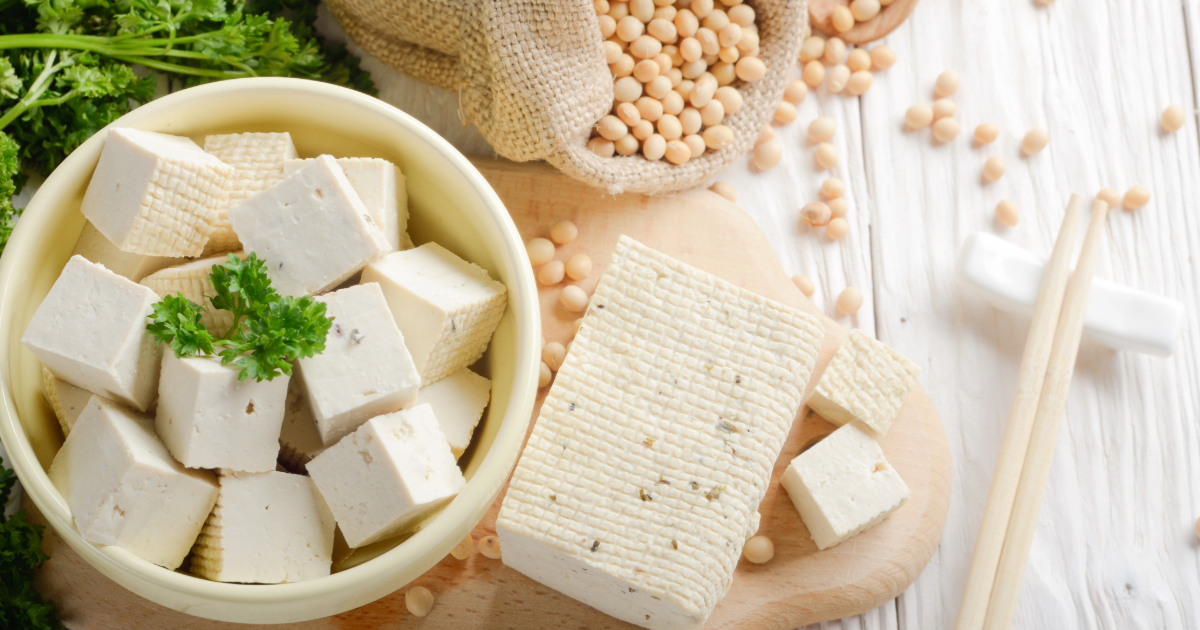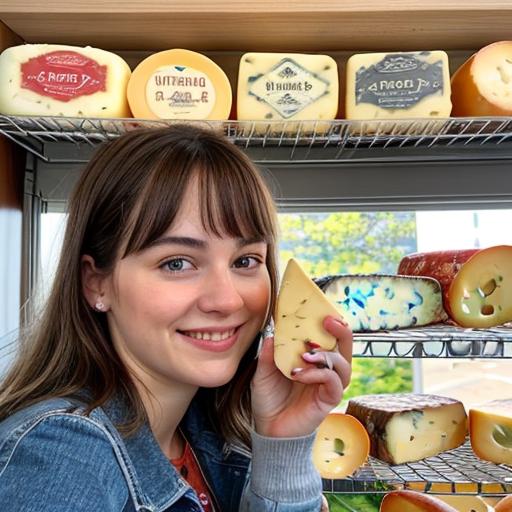Recently, you may have heard more about “vegan” foods, including vegan cheese. But what does vegan actually mean? And what sets apart vegan cheese from regular dairy cheese?

Vegans don’t eat any animal products at all, including eggs, dairy like milk or yogurt, honey and of course meat. Vegetarians don’t eat meat or fish but may eat eggs and dairy. Veganism has grown for health and environmental reasons. And new vegan products like vegan cheese aim to perfectly replace animal products.
So if vegan cheese doesn't use animal milk, what does it use?
Ingredients: Dairy Milk vs. Vegetable Oils and Proteins
The most basic difference comes down to ingredients. Dairy cheese is made from animal milk, usually cow, goat or sheep. This milk provides protein for cheese's signature texture and nutrients like calcium.
Vegan cheese, meanwhile, uses no animal products whatsoever. Instead, it turns to:
- Vegetable proteins like soy or pea protein
- Plant-based oils like coconut or olive oil
- Nuts like cashews or almonds
- Starches from corn, potatoes or tapioca
These basic building blocks recreate milk’s protein content and fatty richness in a cruelty-free way. But getting that same smooth, melty, elastic cheese consistency takes more work without milk.
Key Takeaway: Vegan cheese swaps animal milk for vegetable proteins, oils and starches. Recreating dairy texture without animal ingredients poses an innovation challenge.
How It's Made: Fermenting Milk vs Mixing Plant Ingredients
Traditional cheesemaking starts by curdling milk. Enzymes or acids split milk into soft solids (curds) suspended in liquid whey. Then the curds are collected, shaped, pressed and aged. Time, temperature and moisture shape intricate flavors as proteins and fats interact.
Vegan cheese takes a different path to mimic this process. First soy or nut proteins are broken down by bacterial fermentation, similar to making yogurt. Then plant-based fats, gums and minerals get folded in to approximate curdy texture before shaping and aging.
The aging period matters a lot too. Just like dairy cheese, flavors build over time as proteins break down. But plant proteins work differently than animal ones found in cheese. That means most vegan cheeses sport less complex, distinct profiles. Still, artisanal vegan cheesemakers are getting creative with new techniques like mushroom fermentation.
The Look, Feel & Taste: Does Vegan Cheese Measure Up?
Let's get honest here - early vegan cheeses got a bad rap. Critics called them rubbery, bland and nothing like the real deal. But thanks to food science and gourmet innovation, the options keep getting better.
Modern high-quality vegan cheese comes darn close to mimicking milky cheese's taste and texture. Its stretchiness, meltability and rich savoriness impress. Still, small differences do persist. We break down what to expect from contemporary vegan cheese’s look, feel and flavor.
| Vegan Cheese | Dairy Cheese |
|---|---|
| Slightly less glossy sheen | Signature gloss from milk fat |
| Less flexibility when cold | More pliable when chilled |
| Melts quickly once heated | Melts smoothly at lower temperatures |
| Doesn't brown or crisp the same | Browns and crisps under broiler or pan |
Appearance-wise, color and shape can closely emulate familiar cheddar, mozzarella or camembert. But side-by-side, the subtler sheen and structural differences give it away. Starch and gums help mimic milky elasticity, especially when melted. But from the fridge, many vegan cheeses still act a bit stiff.
Taste continues to pose the biggest challenge. Recreating tangy, salty savoriness without dairy fats and proteins proves difficult. Some taste comparisons between vegan and dairy options:
- Cheddar: sharper in vegan version
- Mozzarella: less complexity, missing some creaminess
- Ricotta: less rich in vegan form
- Cream cheese: tangier and thinner when veganized
Within those limitations, skilled vegan cheesemakers craft some shockingly cheesy, crave-worthy foods. Particularly when melted, today's best stand shoulder-to-shoulder with dairy. Shredded in quesadillas or a gooey toasted sandwich, modest taste differences fade.
Key Takeaway: Thanks to ongoing innovation, high-end vegan cheese increasingly resembles dairy cheese in taste, texture and meltability. Subtle differences remain, but it handily works for many favorite cheesy recipes.
Is Vegan Cheese Healthier Than Dairy Cheese?
If you avoid dairy for health reasons, vegan cheese offers an appealing workaround. Cutting out all animal fat and protein provides some benefits:
- Lowers cholesterol and risk of heart disease
- Eliminates potential added hormones from dairy cows
- Prevents food poisoning from contaminated animal products
- Omits common allergens like dairy and egg
Unfortunately, most vegan cheeses lose a few healthy components of real cheese in the process:
- Lower in protein: since high-protein soy/nut bases replace milk
- Less calcium and vitamin D: no more nutrient-rich milk
- Often higher in sodium: added to boost flavor
Still, the nutritional downsides seem minor compared to vegan cheese removing animal fat and cholesterol. Just don’t expect it to match real cheese’s protein value. Pair it instead with other plant proteins like beans or tofu.
Top Vegan Cheese Brands To Try
New vegan cheeses debut all the time, joining established brands on grocery store shelves. Here the top recommended options to sample:
- Parmesan Substitutes: For topping pastas, risottos and salads, shreds or sprinkle-on from Parma or Violife work well. Go Veggie makes a great budget-friendly option too.
- Cheddar Cheese: Daiya rules the melty vegan cheddar category, offering up classics like mac n’ cheese and grilled cheese. Follow Your Heart also nails that essential cheddar tang.
- Mozzarella: Oozing, gooey, gloriously melty - Miyoko’s Fresh Vegan Mozz wows on pizzas with its perfect stretch. Their creamier soft baked version rocks it too.
- Ricotta Cheese: Creamy, fluffy ricotta impossibly close to dairy comes from Kite Hill. Try it and you might just ditch the real stuff for good.
- Cream Cheese: Both Tofutti and Go Veggie ace that lush, smooth cream cheese consistency. Or explore nut-based artisanal options for unique flavor.
Gourmet vegan cheese makers like Treeline, Dr. Cow and Punk Rawk Labs push boundaries on cultured, aged styles. Their innovative flavors deserve a dedicated cheese board slot.
Experiment with these dairy-free picks in favorite recipes. Crowd-test against the “real” thing, and we bet most tasters will feel impressed by how close they come. Of course taste preferences vary, so sample different vegan cheese brands to find your new faves.
FAQs
Can you bake or grill vegan cheese?
Yes absolutely! Thanks to melting innovations like added starches, many brands nicely melt, ooze, brown and crisp to perfection. Just watch closely for differences in ideal oven temps or cook times compared to dairy cheese.
What’s the shelf life of pre-shredded vegan cheese?
Depending on variety, most last 2-4 weeks refrigerated. Unopened, some age 6 months in the fridge, so stock up on those sale deals! Properly wrapped harder styles also freeze well for longer term storage.
Does vegan cheese need special handling or storage?
Nope, you can treat it just like regular cheese. Tightly wrap cuts, store in the fridge and watch for mold development over time. One exception: some oil-based soft cheeses require refrigerator doors for food safety, so check labels.
Can you incorporate vegan cheese intoany recipe that calls for regular cheese?
Largely yes, thanks to major improvements in melt, stretch and flavor. But you may need to tweak baking times, ideal oven temperatures or total cook times in some cases. So stay nearby to check doneness when swapping in first.
Do all vegans eat vegan cheese or is it controversial?
Like many processed vegan products, some strict plant-based eaters or “healthy vegans” avoid it. They prefer sticking to whole foods over substitutes. But many longtime vegans LOVE finally having good cheese options after years without. Daiya and Miyoko’s enjoy broad enthusiasm in vegan communities.
Does vegan cheese taste exactly 100% like dairy cheese?
Honestly...not quite yet. But artisans continue working tirelessly toward an indistinguishable mouthfeel and flavor. And they get impressively closer every year thanks to emerging techniques. For now small taste and texture differences persist. But we agree today’s best melt beautifully and deliver ultra-satisfying, craveable cheesiness impact.
Conclusion
Traditional cheese relies on animal milk while innovative vegan cheese uses vegetablebuilding blocks instead.
At first, poor vegan cheese mimics spawned jokes and derision. But thanks to rising demand and food science strides, plant-based cheese now looks, tastes and acts much closer to the real thing.
While subtle differences give away its dairy-free nature, today's impressive options please both ethical vegans and flavor-craving dairy eaters.

